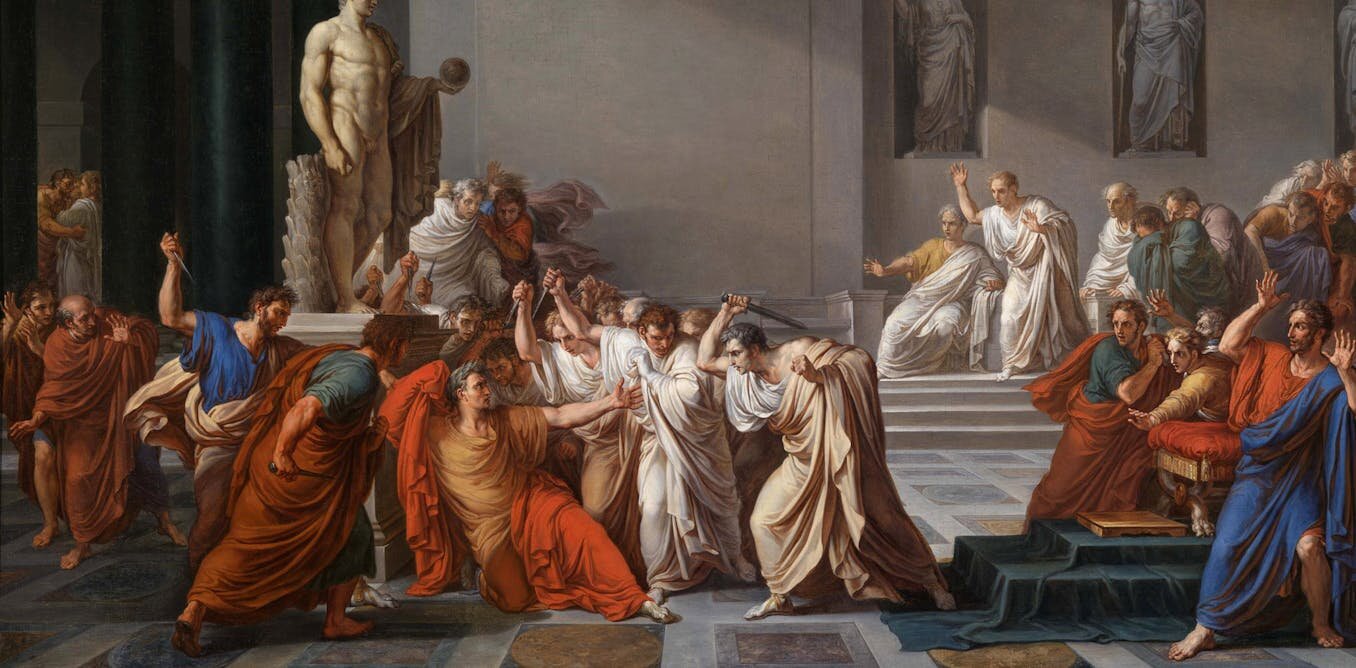I joined Turchin and a few others who were establishing a new field—a new way to investigate history. It was called cliodynamics after Clio, the ancient Greek muse of history, and dynamics, the study of how complex systems change over time. Cliodynamics marshals scientific and statistical tools to better understand the past.
The aim is to treat history as a "natural" science, using statistical methods, computational simulations and other tools adapted from evolutionary theory, physics and complexity science to understand why things happened the way that they did.
![]()
One of the most common patterns that has jumped out is how extreme inequality shows up in nearly every case of major crisis. When big gaps exist between the haves and have-nots, not just in material wealth but also access to positions of power, this breeds frustration, dissent and turmoil.
"Ages of discord", as Turchin dubbed periods of great social unrest and violence, produce some of history's most devastating events. This includes the US civil war of the 1860s, the early 20th-century Russian Revolution, and the Taiping rebellion against the Chinese Qing dynasty, often said to be the deadliest civil war in history.
All of these cases saw people become frustrated at extreme wealth inequality, along with lack of inclusion in the political process. Frustration bred anger, and eventually erupted into fighting that killed millions and affected many more.
![]()
Perhaps one of the most surprising things is that inequality seems to be just as corrosive for the elites themselves. This is because the accumulation of so much wealth and power leads to intense infighting between them, which ripples throughout society.
In the case of Rome, it was the wealthy and powerful senators and military leaders like Julius Caesar who seized on the anger of a disaffected populace and led the violence.
This pattern also appears at other moments, such as the hatred between southern landowners and northern industrialists in the run up to the US civil war and the struggles between the Tsarist rulers and Russia's landed nobility during the late 1800s.
Meanwhile, the 1864 Taiping rebellion was instigated by well educated young men, frustrated at being unable to find prestigious positions in government after years of toiling away at their studies and passing the civil service exams.
What we see time and again is that wealthy and powerful people try to grab bigger shares of the pie to maintain their positions. Rich families become desperate to secure prestigious posts for their children, while those aspiring to join the ranks of the elite scratch and claw their way up. And typically, wealth is related to power, as elites try to secure top positions in political office.
![]()
These patterns probably sound familiar. Consider the college admissions scandal in the US in 2019.
![]()
Donald Trump is only one recent and fairly extreme version of this motif that pops up time and again during ages of discord
![]()
If the past teaches us anything, it is that trying to hold on to systems and policies that refuse to appropriately adapt and respond to changing circumstances—like climate change or growing unrest among a population—usually end in disaster. Those with the means and opportunity to enact change must do so, or at least to not stand in the way when reform is needed.
![]()



wellll they are getting there
don't worry they'll recommend some means tested reform package that's impossible under capital dictatorship and then go back to their old lib beliefs
i can dream....
They shut their eyes and close their ears to the logical conclusions